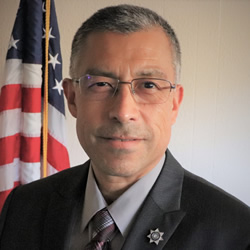8.26 Pharmaceutical Management and Psychotropic Medications Pursuant to Section 1438 and 1439
| Chapter | 8 |
|---|---|
| Section | 26 |
| Subject | Pharmaceutical Management and Psychotropic Medications Pursuant to Section 1438 and 1439 |
| Effective Date | 4/30/2024 12:00 AM |
A. In accordance with the Performance and Quality Improvement Work Plan, Section 4070 of the Welfare and Institutions Coe and CCR Title 22 Div. 5, Chapter 9, Article 4, Section 77083, San Luis Obispo County Behavioral Health Services has a medication monitoring system to assess and monitor prescribing practices.
1. It is the policy of the Health Agency to assure a legal, safe, and accurate method of dispensing and administering medication. That all medications delivered to youths shall be the right medication, in the correct dosage, and delivered to the correct youth.
2. Verbal orders shall be signed within 72 hours.
3. Youth will be identified by the name and picture on their identification wristband.
4. Medication shall be kept in a securely locked cabinet.
5. Upon release, youth will be sent with a prescription, or 30 day supply of medication.
6. Quarterly inspections shall be conducted by a licensed pharmacist
B. Medically licensed persons may administer psychotropic medications to youth detained at the Juvenile Hall in a safe, proper and uniformly manner.
C. Medically licensed persons for the purposes of this policy include Physicians, RNs, NPs, LVN's, LPTs with a valid California license.
1. RNs, LVNs and LPTs may accept and implement telephone, verbal or written medication orders from a physician.
2. The medically license person on each shift will review the physician's orders for any psychotropic medications that youth are scheduled to receive.
3. If a mental status exam by a medically licensed staff person indicates that a youth needs psychotropic medication, the medically licensed staff person contacts the psychiatrist on duty at 781-4700 for orders.
D. General Principles
1. The medically licensed person must know the classification, action, and potential side effects of each medication. He/she will review this information prior to administering any medication unfamiliar to him/her.
2. The medically licensed person is responsible for obtaining a written consent to administer psychotropic medications from the youth's parent(s), legal guardian(s), responsible relative or the Juvenile Court. This consent contains information on the medication's class, action, effect and potential side effects.
3. Medications are checked against the physician's orders for:
a. Correct person
b. Correct medication
c. Correct time
d. Correct dosage
e. Correct route
4. The youth's allergies are reviewed to verify the medication is not contraindicated.
5. Verify identification of youth by:
a. Checking the photo ID on the youths wrist band
b. Verification by the custody officer in attendance
E. Refusal to take psychotropic medication
A youth in custody may refuse to take a psychotropic medication. If the youth refuses, and they continue to threaten imminent harm to self or others, the SLO Mobile Crisis team shall be summoned by calling 781-4700. They will evaluate the youth for possible 5585 admission to an acute hospital.
F. Administration of medication
1. Administer medication. Stay with youth to verify it has been ingested (PO), or properly absorbed (IM).
2. The medically licensed person takes and records the youth's vital signs (BP/P/R) at least once within a 2 hour period after the medication is administered.
3. Any significant change in the youth's vital signs is promptly reported in person or by phone to the physician on duty for further instructions.
4. Medication is never left unattended.
G. Documentation
1. The medication is charted in the youth's record after administration.
2. The documentation should include the name of the medication, the dose, the route and what symptoms it was intended to reduce.
3. Within an hour, a second entry should indicate if the medication was effective, and any side effects noted.
